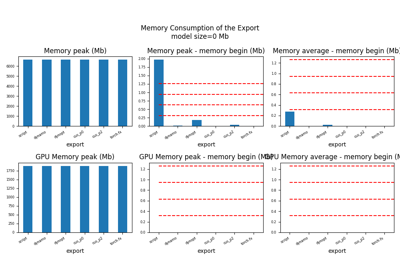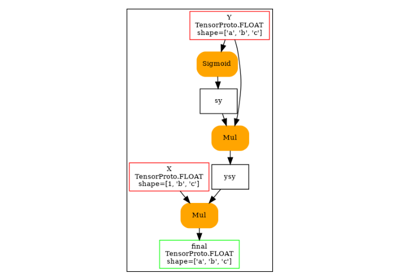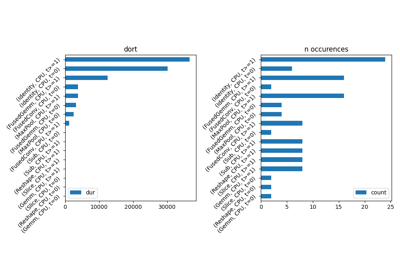Note
Go to the end to download the full example code.
201: Better shape inference¶
A simple model¶
import numpy as np
import onnx
import onnx.helper as oh
import onnx.shape_inference as osh
from onnx.reference import ReferenceEvaluator
from experimental_experiment.xshape.shape_builder_impl import BasicShapeBuilder
model = oh.make_model(
oh.make_graph(
[
oh.make_node("Concat", ["X", "Y"], ["xy"], axis=1),
oh.make_node("Split", ["xy"], ["S1", "S2"], axis=1, num_outputs=2),
oh.make_node("Concat", ["S2", "S1"], ["zs"], axis=1),
oh.make_node("Relu", ["zs"], ["Z"]),
],
"dummy",
[
oh.make_tensor_value_info("X", onnx.TensorProto.FLOAT, ["a", "b"]),
oh.make_tensor_value_info("Y", onnx.TensorProto.FLOAT, ["a", "c"]),
],
[oh.make_tensor_value_info("Z", onnx.TensorProto.FLOAT, ["a", "e"])],
),
opset_imports=[oh.make_opsetid("", 18)],
ir_version=9,
)
feeds = dict(X=np.random.rand(3, 4).astype(np.float32), Y=np.random.rand(3, 6).astype(np.float32))
ref = ReferenceEvaluator(model)
expected = ref.run(None, feeds)
Classic Shape Inference¶
model2 = osh.infer_shapes(model)
for info in model2.graph.value_info:
t = info.type.tensor_type
shape = tuple(d.dim_param or d.dim_value for d in t.shape.dim)
print(f"{info.name}: {t.elem_type}:{shape}")
xy: 1:('a', 'unk__0')
S1: 1:('a', 'unk__1')
S2: 1:('a', 'unk__2')
zs: 1:('a', 'unk__3')
Basic Shape Inference¶
The algorithm infer shapes wherever the output shape of a node does not
depend on the content even. The evaluation relies on ast.
builder = BasicShapeBuilder()
builder.run_model(model)
builder.update_shapes(model)
for info in model.graph.value_info:
t = info.type.tensor_type
shape = tuple(d.dim_param or d.dim_value for d in t.shape.dim)
print(f"{info.name}: {t.elem_type}:{shape}")
xy: 1:('a', 'b+c')
S1: 1:('a', 'CeilToInt(b+c,2)')
S2: 1:('a', 'b+c-CeilToInt(b+c,2)')
zs: 1:('a', 'b+c')
Evaluate Expressions¶
We can also evaluate every expression without evaluating the model itself.
dimensions = dict(a=3, b=4, c=6)
for name in ["X", "Y", "xy", "S1", "S2", "zs", "Z"]:
sh = builder.evaluate_shape(name, dimensions)
print(f"shape of {name!r} is {sh}")
shape of 'X' is (3, 4)
shape of 'Y' is (3, 6)
shape of 'xy' is (3, 10)
shape of 'S1' is (3, 5)
shape of 'S2' is (3, 5)
shape of 'zs' is (3, 10)
shape of 'Z' is (3, 10)
Total running time of the script: (0 minutes 0.031 seconds)
Related examples

201: Use torch to export a scikit-learn model into ONNX
201: Use torch to export a scikit-learn model into ONNX

201: Evaluate different ways to export a torch model to ONNX
201: Evaluate different ways to export a torch model to ONNX


